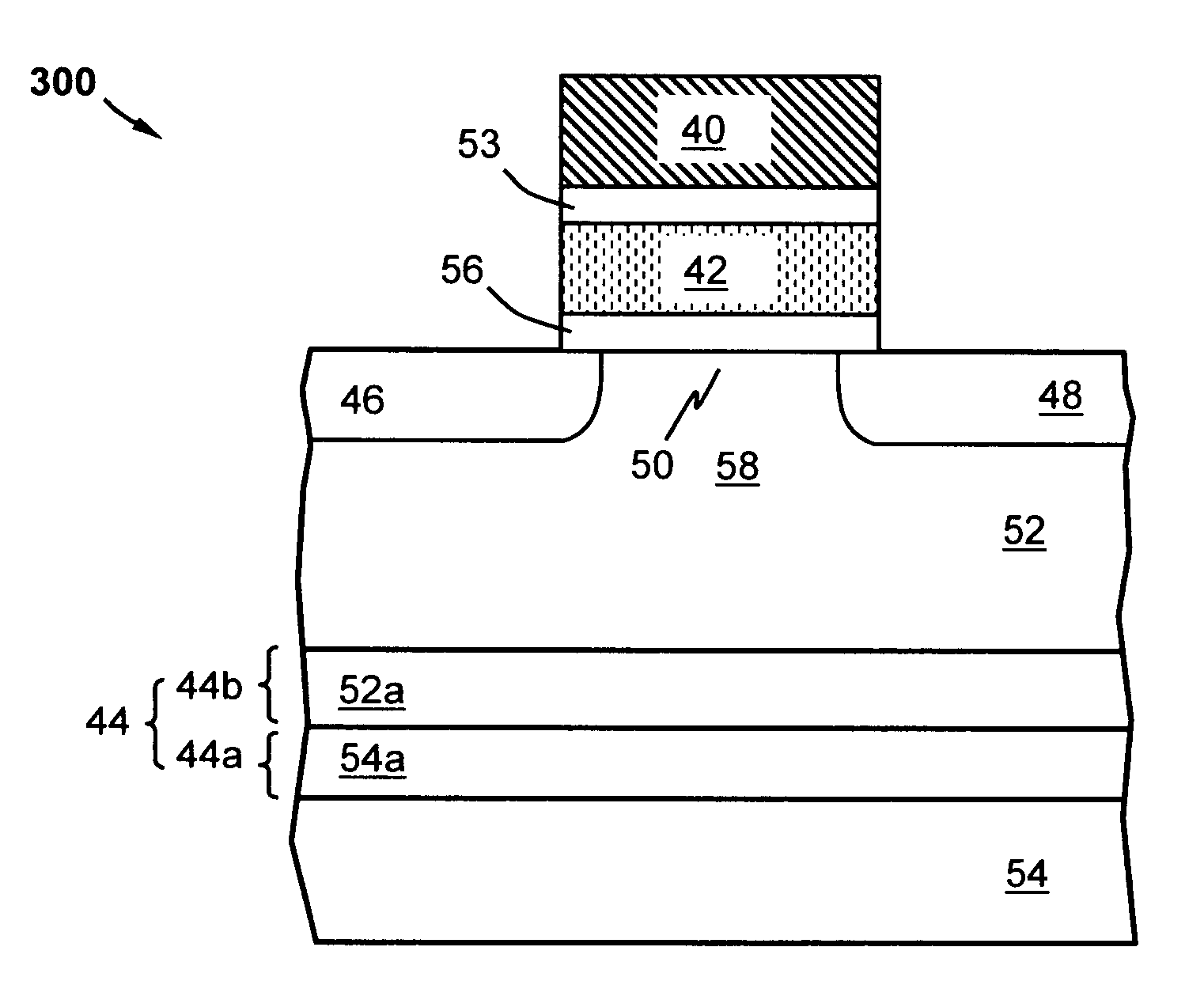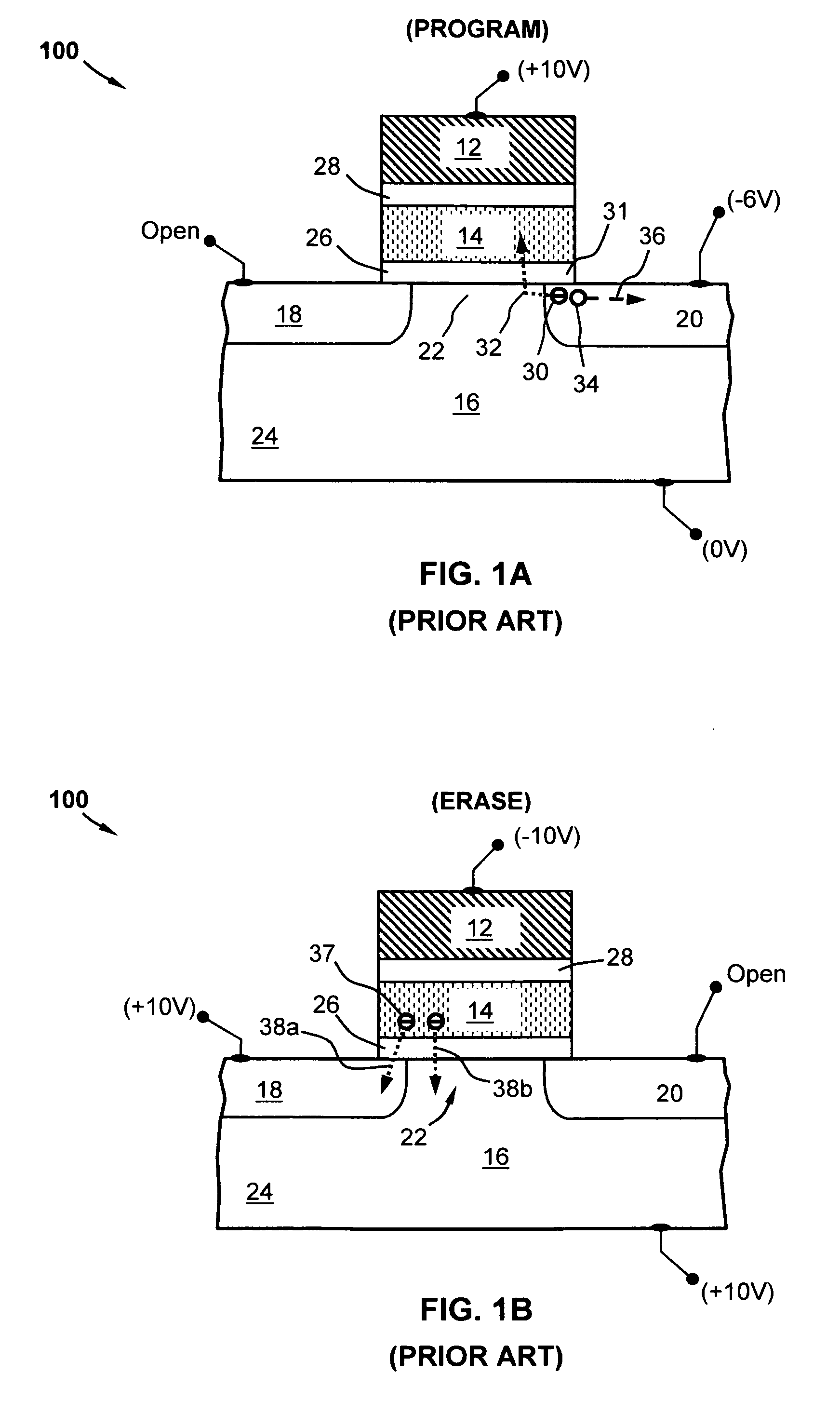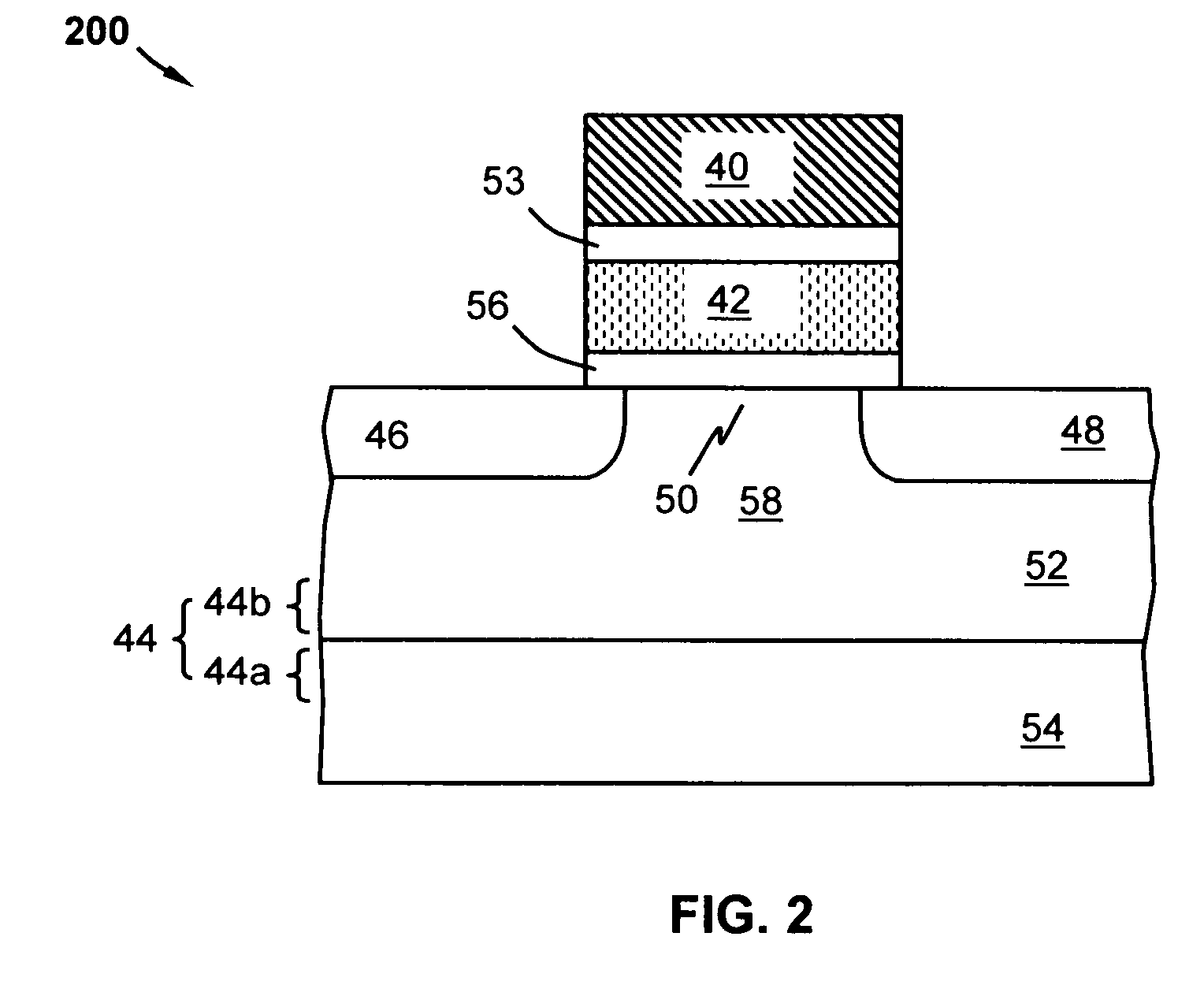P-channel electrically alterable non-volatile memory cell
a non-volatile memory cell, electrically alterable technology, applied in the direction of solid-state devices, semiconductor devices, instruments, etc., can solve the problems of introducing cell disturb, charge leakage and retention failure, and memory cells disclosed in prior art are believed to suffer from high field induced silc issues, etc., to improve electrically alterable memory cells and operation methods.
- Summary
- Abstract
- Description
- Claims
- Application Information
AI Technical Summary
Benefits of technology
Problems solved by technology
Method used
Image
Examples
Embodiment Construction
[0038] Embodiments of the present invention described in the following detailed description are directed at memory cell structures and operation methods. Those of ordinary skill in the art will realize that the detailed description is illustrative only and is not intended to restrict the scope of the claimed inventions in any way. Other embodiments of the present invention, beyond those embodiments described in the detailed descriptions, will readily suggest themselves to those of ordinary skill in the art having the benefit of this disclosure. Reference will now be made in detail to implementations of the present invention as illustrated in the accompanying drawings. Where appropriate, the same reference indicators will be used throughout the drawings and the following detailed description to refer to the same or similar parts.
[0039] In the interest of clarity, not all of the routine features of the implementations described herein are shown and described. It will, of course, be a...
PUM
 Login to View More
Login to View More Abstract
Description
Claims
Application Information
 Login to View More
Login to View More - R&D
- Intellectual Property
- Life Sciences
- Materials
- Tech Scout
- Unparalleled Data Quality
- Higher Quality Content
- 60% Fewer Hallucinations
Browse by: Latest US Patents, China's latest patents, Technical Efficacy Thesaurus, Application Domain, Technology Topic, Popular Technical Reports.
© 2025 PatSnap. All rights reserved.Legal|Privacy policy|Modern Slavery Act Transparency Statement|Sitemap|About US| Contact US: help@patsnap.com



